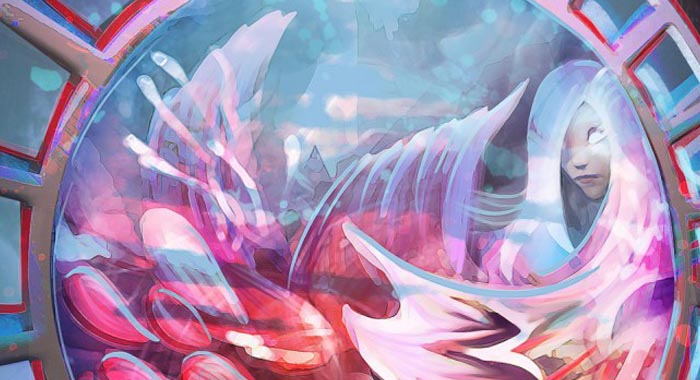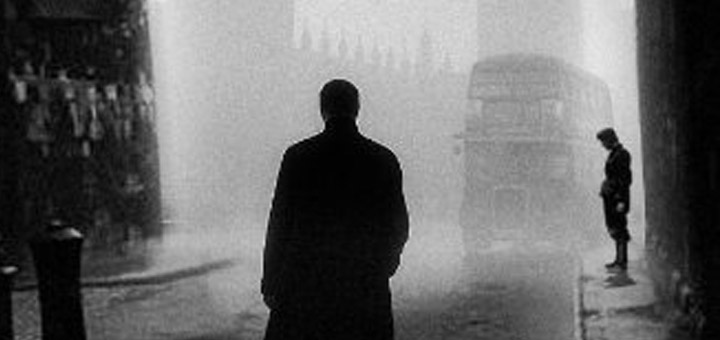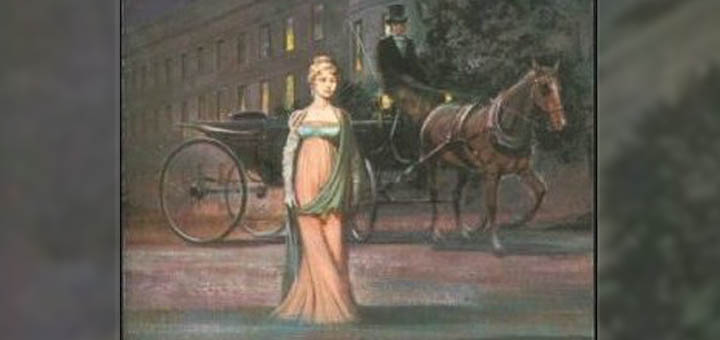In Australia Jane and Jack Dorman own a prosperous sheep farm, or station. For the past few years most of the money they earned has gone to pay off loans and debts, but now, for the first time the wool money is all theirs, and its been a good year for selling wool. But Jane is worried about her aunt back in England. Aunt Ethel was the only family member who supported her in her decision to marry an Australian and leave England, they still exchange letters, and in Ethel’s latest she mentioned little things that begin to worry Jane.
Jane is right to worry. The story moves to England and Jennifer, Ethel’s granddaughter, receives a telephone call from her mother asking her to check in on Ethel. When Jennifer does she discovers that Ethel is suffering from starvation and malnutrition. She has been hiding her lack of money from her family and hasn’t asked anyone for help, instead she was selling the furniture and pawning whatever valuables she had.
Back in Australia the Dorman’s decide to send Ethel a cheque, but the money comes too late, Ethel knows she is dying and insists that Jennifer take the money and use it herself to leave England and travel to Australia.
Okay, I’ve already spent longer than I wanted recapping the plot, and I haven’t even gotten to Carl Zlinter yet. But you get how a rough idea of how the story starts out.
And those early chapters set in England are utter misery. Wonderfully written, but just plain miserable. Everyone is still living off ration cards, there is no meat, the damn socialists are in power and no one is happy. And the National Health system, which has just been introduced, is destroying the medical profession. People showing up at the doctors asking questions and getting forms filled out! As though they deserved a responsive doctor.
I’m sure there was plenty of hardship in Britain in the years after WWII, but I think that blaming it on the “socialists” and the nationalisation of the health service is part of Shute’s anti-government spiel. Throughout the novel he seems very much of the opinion that if you work hard you will get rewards, and therefore you’ll deserve them. If you don’t get ahead in life then you haven’t been working hard.
His example of this is Australia, where is you get your head down and do the hard graft you’ll be rich. But even there the government is sticking its nose in, making foreign people do 3 years of college in order have their medical qualifications recognised when anyone can see that they’re good hard working people!
But Australia is there to contrast with the grey, wet, cold, crowded, miserable England that Jennifer leaves. Australia is full of open spaces and opportunity. Its warm and sunny, and there is so much land there for the taking.
Yeah, lets not mention the original inhabitants shall we? Because they don’t get a mention at all in this apart from one comment about “blacks” not being in the frame in a postcard. Well, they don’t get to be in frame in this book either.
So, for me, there are a lot of problems with this novel. It’s almost innocent, in a way, how it seems to believe that hard work is enough. But it is a damaging attitude to have, because it ignore the fact that if you start out life with even a little bit of money then you are way ahead of those in poverty, and for many people no amount of hard work will get them out of poverty.
I’m writing a lot about this because it is a huge part of The Far Country, or at least it seemed to take up a huge amount in my reading of it.
There is also the romance, and the wonderful writing. It’s a very easy read, Shute has a very flowing style that just lets the reader keep on reading, even if they don’t agree with everything he says. I suppose I shouldn’t be too hard on Shute, it was the times he lived and wrote in, but for a modern reader I think there are a lot of issues with the book. It didn’t spoil my enjoyment of the book, or at least, I still enjoyed parts of it, but I don’t think it is one I’d be recommending to a lot of people.





Recent Comments